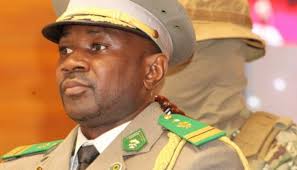APA – Bamako (Mali) – The decision was taken at the extraordinary summit of the West African Economic and Monetary Union (UEMOA) held on Sunday 8 July in Guinea Bissau.
The Conference of Heads of State of this organisation, chaired by Mohamed Bazoum of Niger, decided to lift Mali’s suspension from its bodies and institutions.
The suspension was imposed on 9 January following the decision by the Malian authorities to extend the transition period by five years.
The decision to lift Mali’s suspension came more than a year after the authorities reduced the transition period to 24 months, which in principle should end in March 2024.
An economist contacted by APA pointed out that the lifting of this suspension was conditional in compliance with the timetable of the transition, which has just organised a constitutional referendum that should in principle lead to presidential elections in February-March 2024, aimed at restoring constitutional order by transferring power to elected civilians.
The lifting of the suspension will allow Mali to participate in the meetings of the various UEMOA bodies and institutions, namely the Conference of Heads of State and Government, the UEMOA Council of Ministers, the UEMOA Commission, the UEMOA Court of Justice, the UEMOA Court of Auditors, the UEMOA Inter-Parliamentary Committee, the Central Bank of West African States (BCEAO) and the West African Development Bank (BOAD).
Malians are also allowed to take part in the various calls for candidates for posts in these various bodies and institutions.
Despite the suspension, Mali still managed to raise significant funds from these institutions.
In July alone, the country garnered FCFA 100 billion in bonds on the UEMOA financial market.
After UEMOA, there is ECOWAS, whose lifting of its own suspension is conditional on the restoration of constitutional order.
Moreover, at its 63rd summit held the same day in the capital of Guinea-Bissau, regional leaders said they regretted “the very limited cooperation received by the mediators from the transitional authorities”.
They called for a reassessment of the mediation effort in the light of the challenges that have prevented substantial progress in restoring order”.
They also urged “member states in transition to remain committed to the agreed 24-month transition timetable, while ensuring that the transition processes are conducted in a transparent, inclusive and consultative manner with all stakeholders.”
Before urging them “to expedite the necessary measures for the rapid operationalisation of the joint transition monitoring and evaluation mechanisms agreed with ECOWAS”.
MD/ha/lb/as/APA


